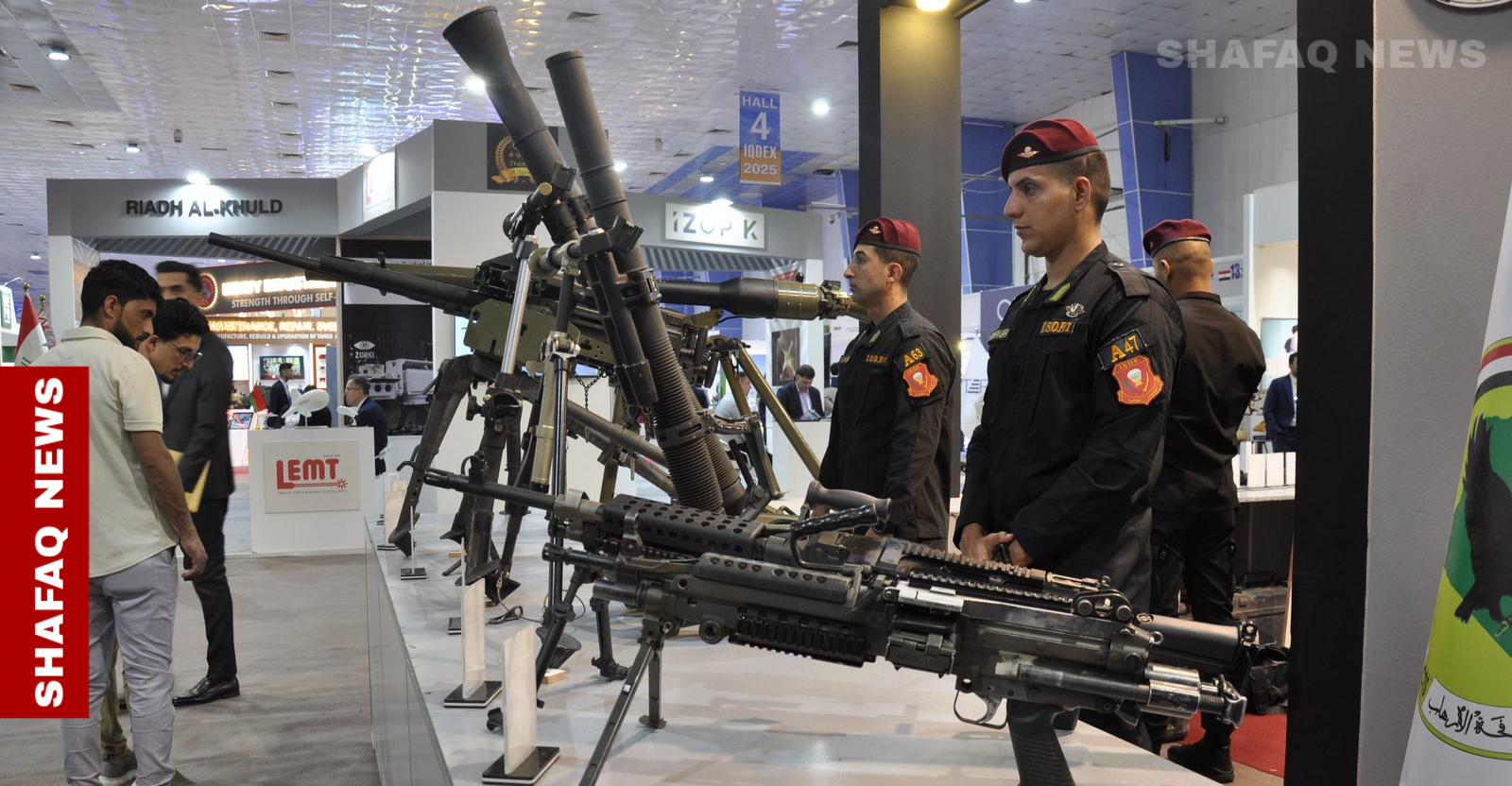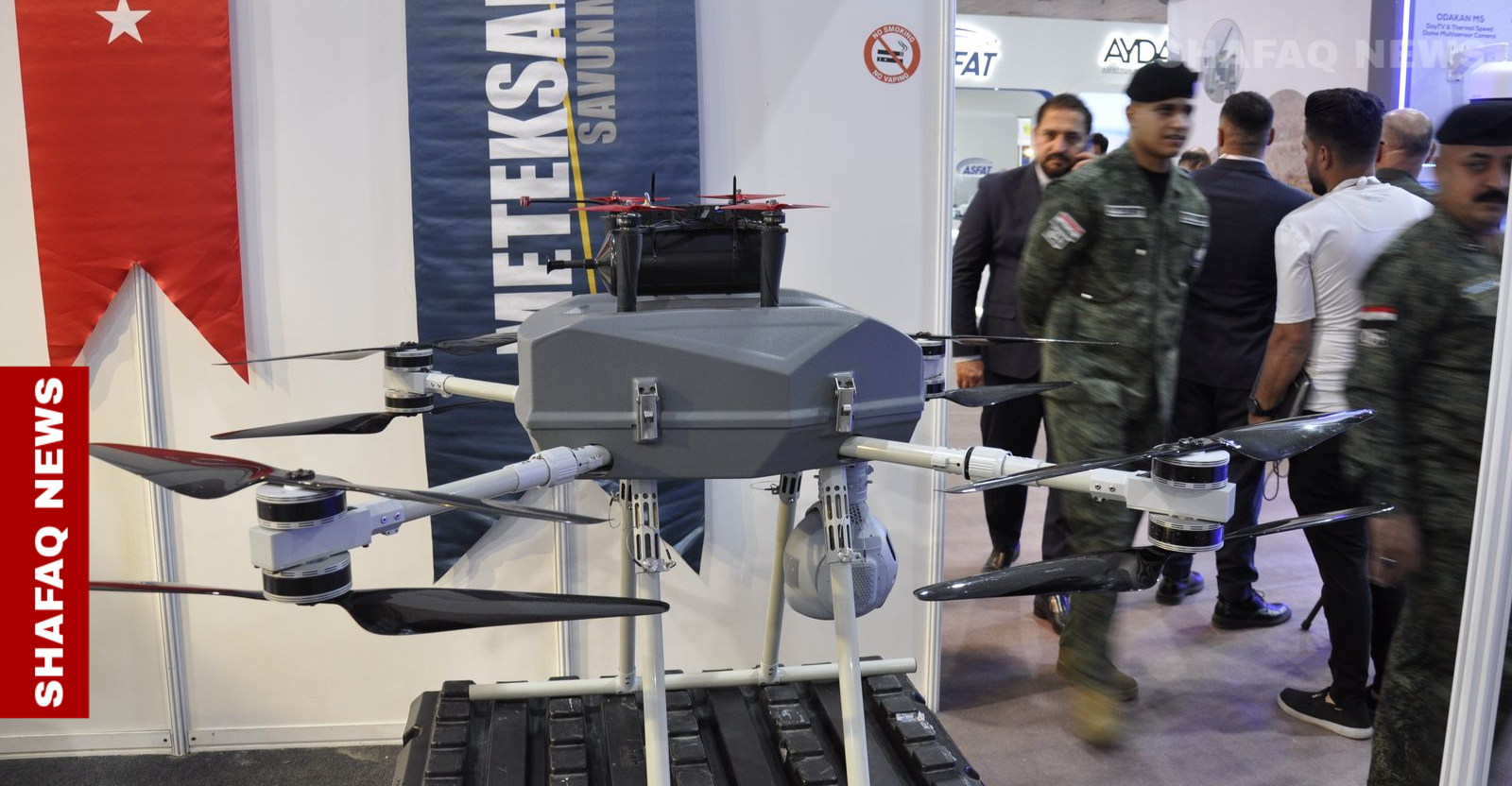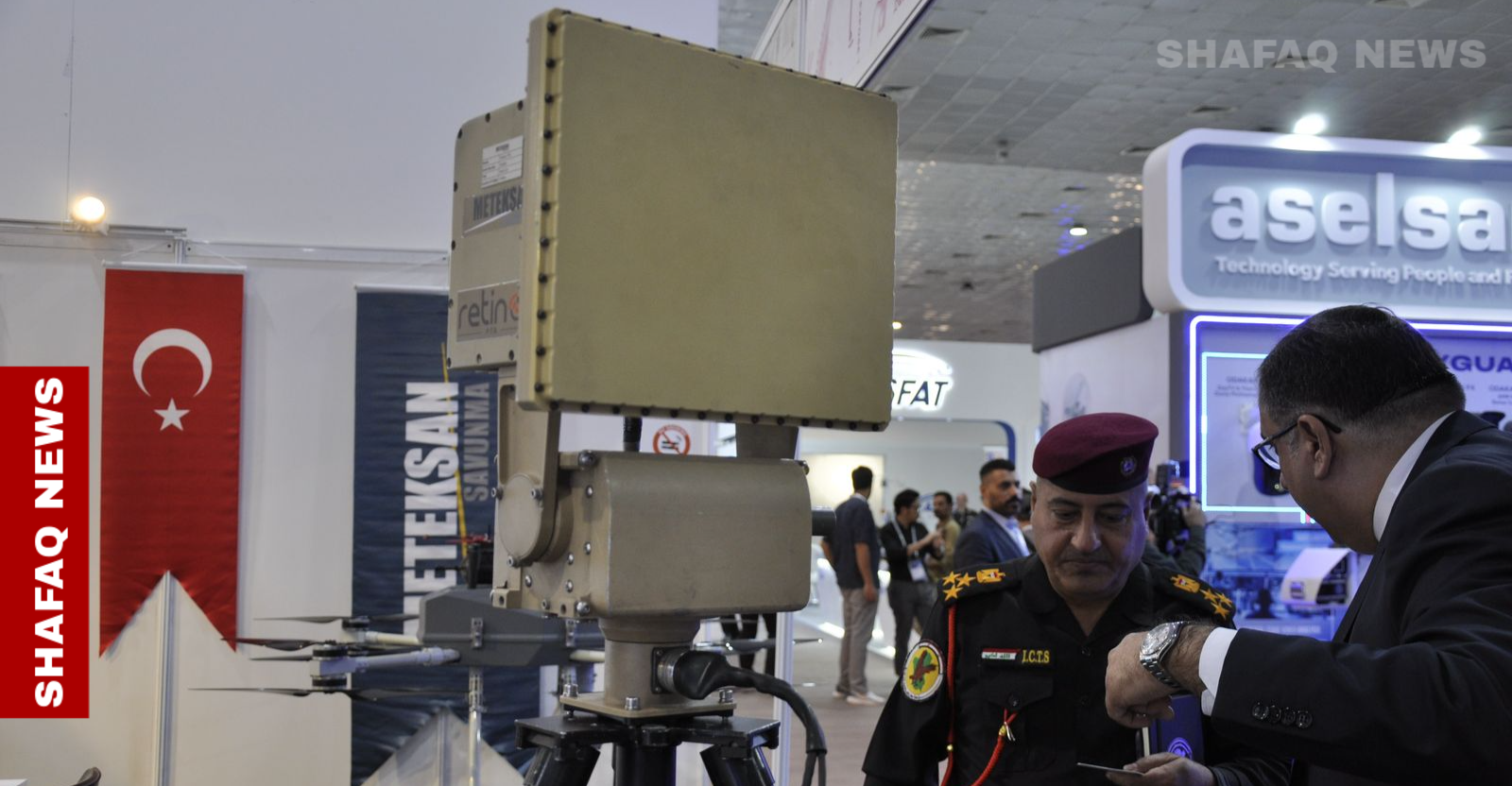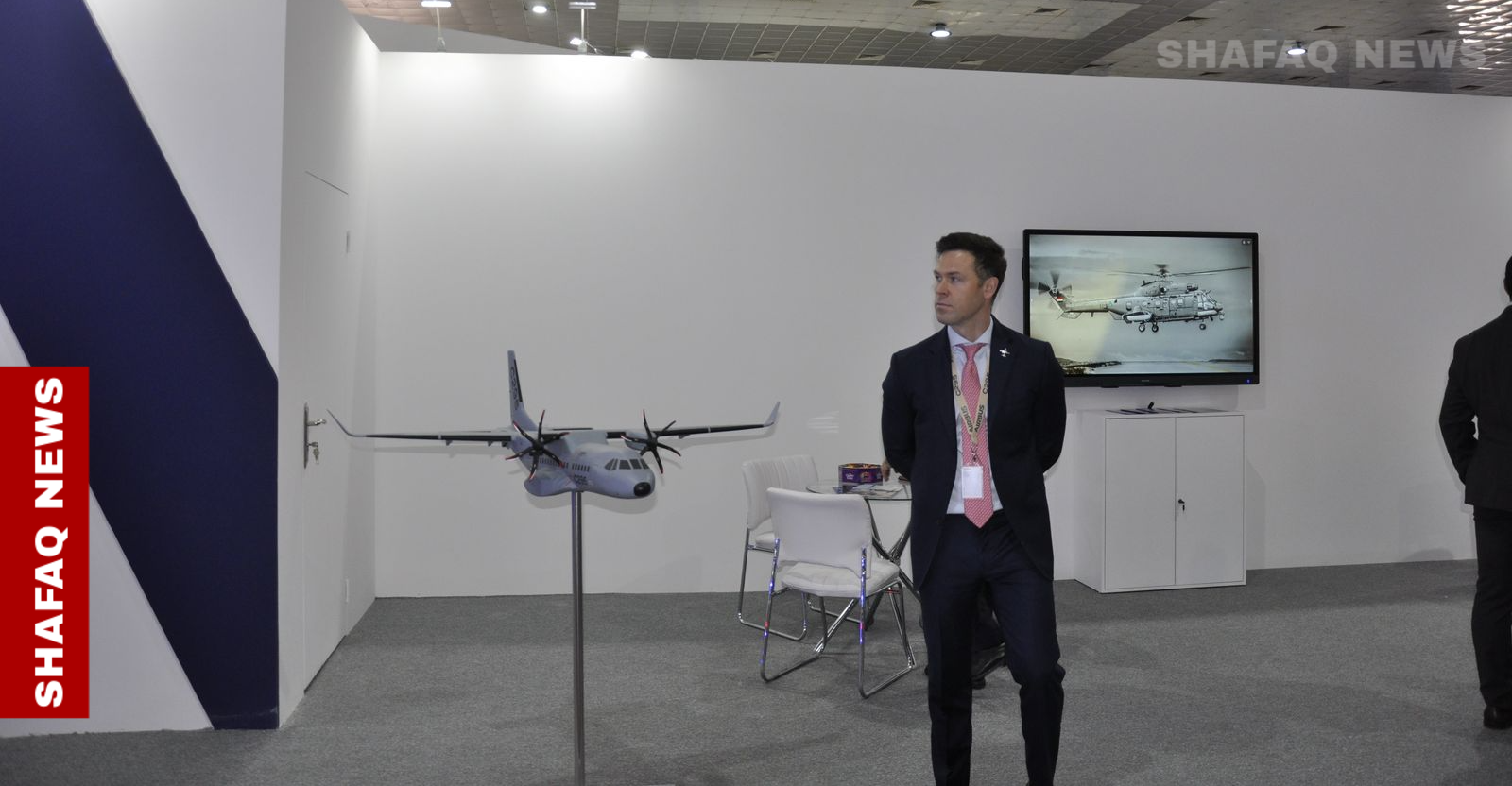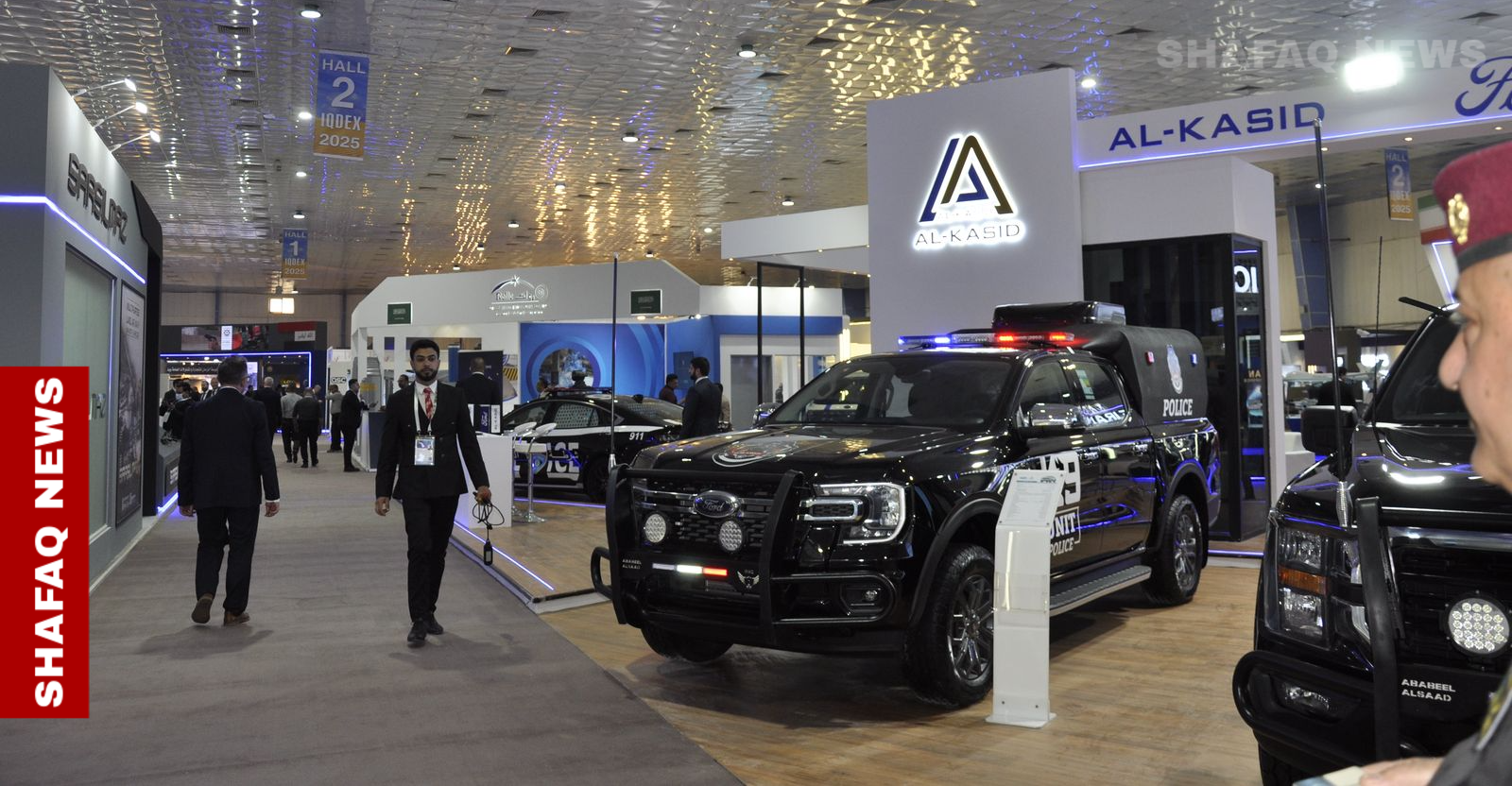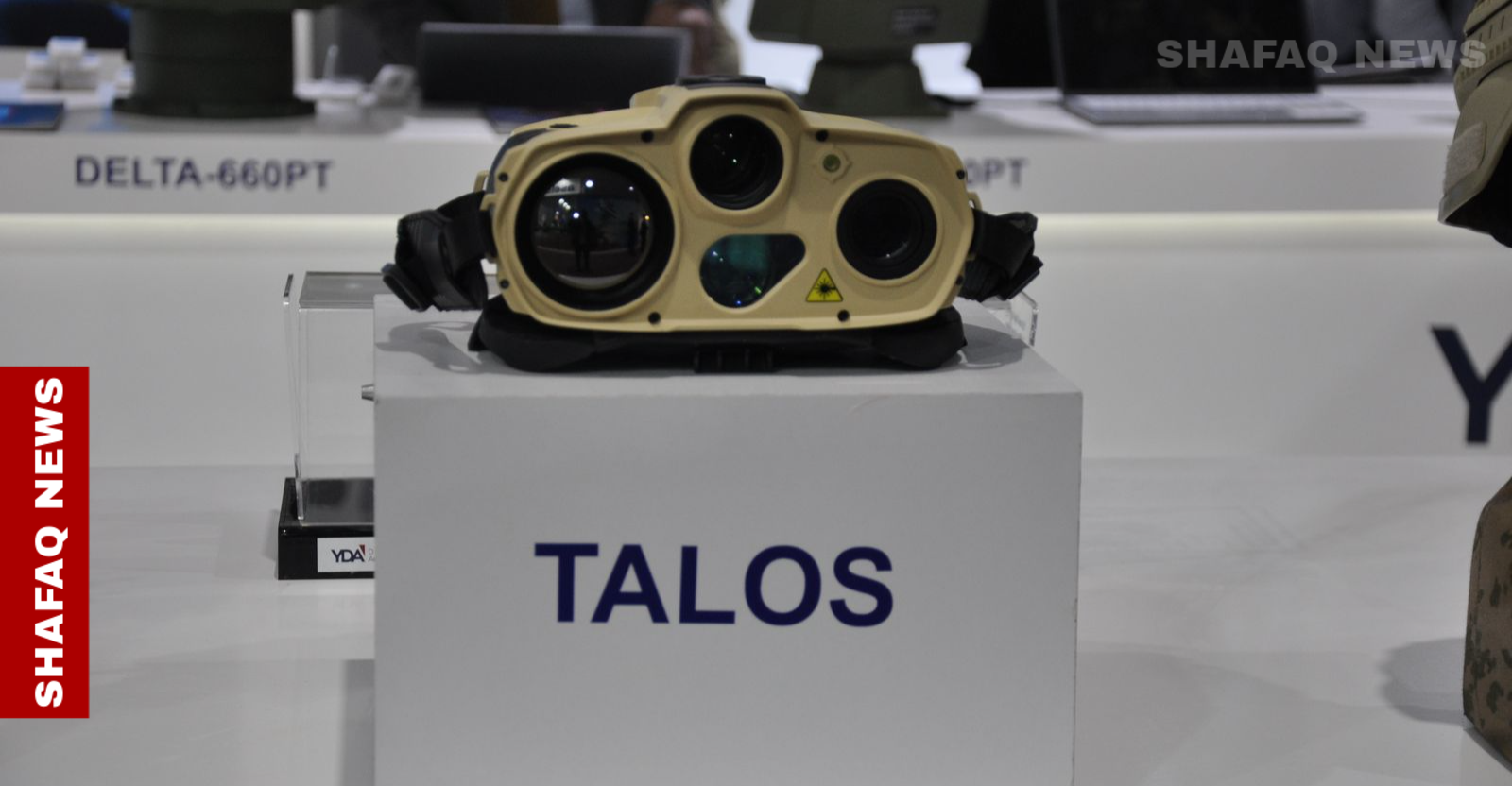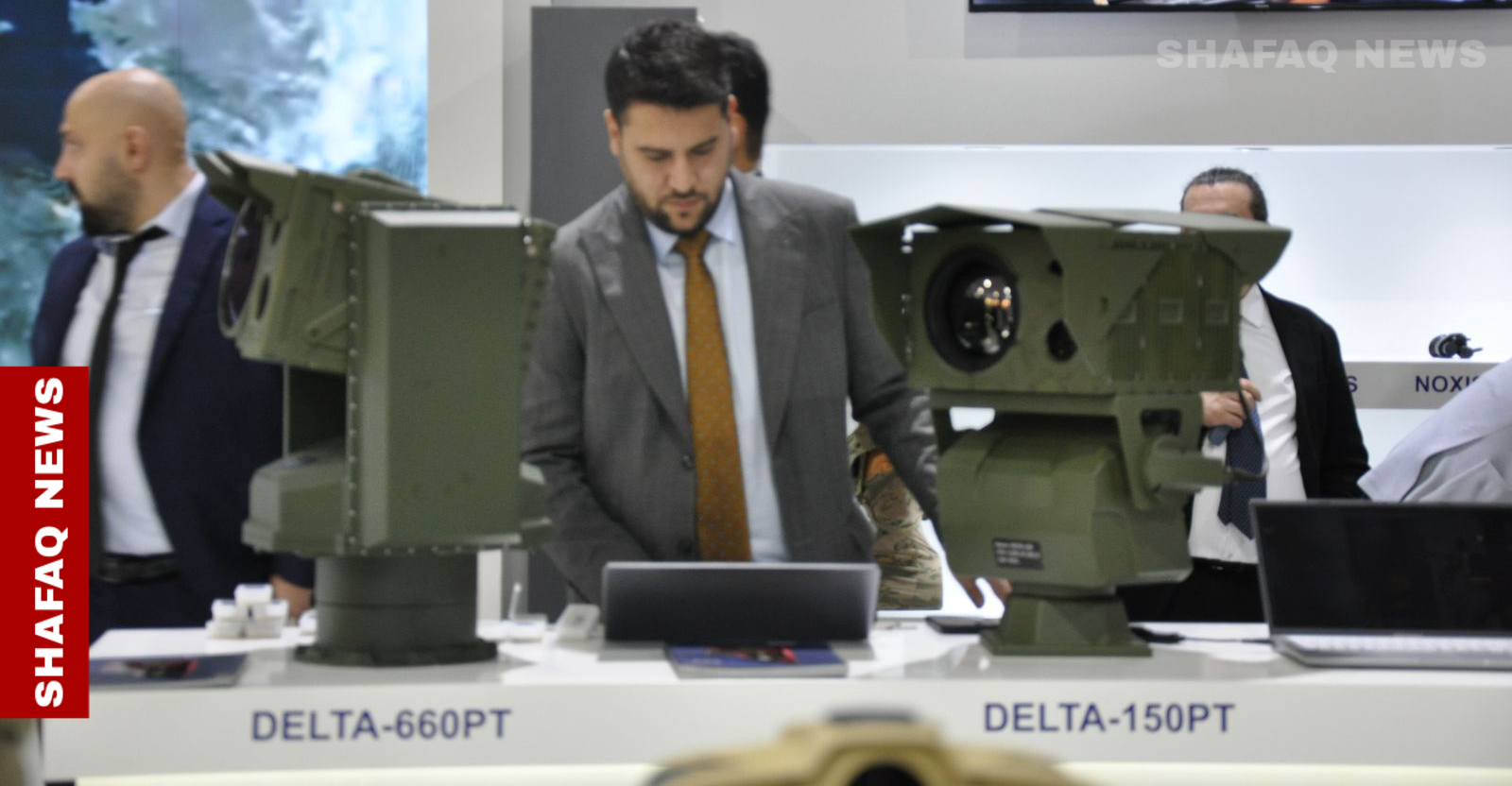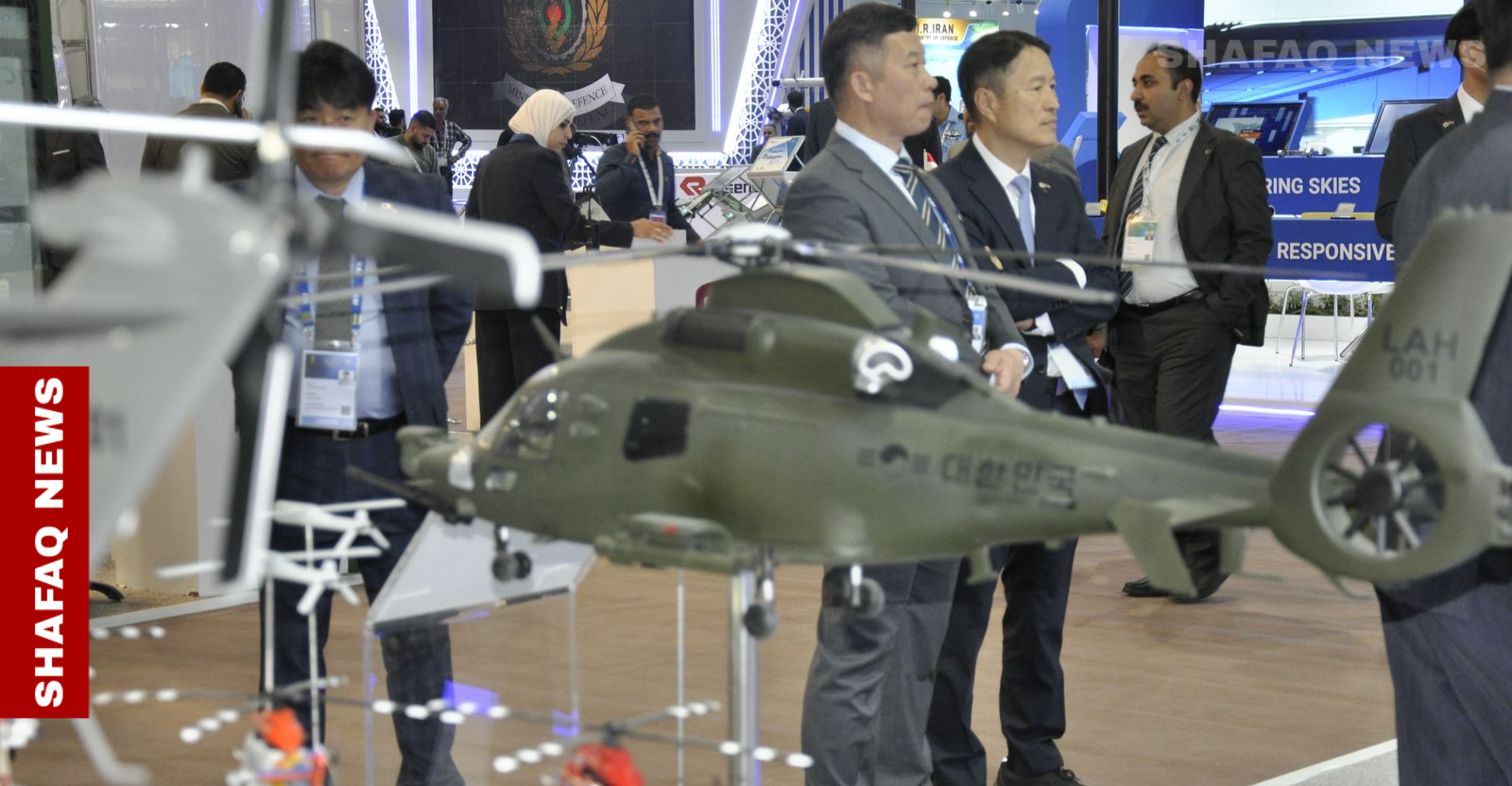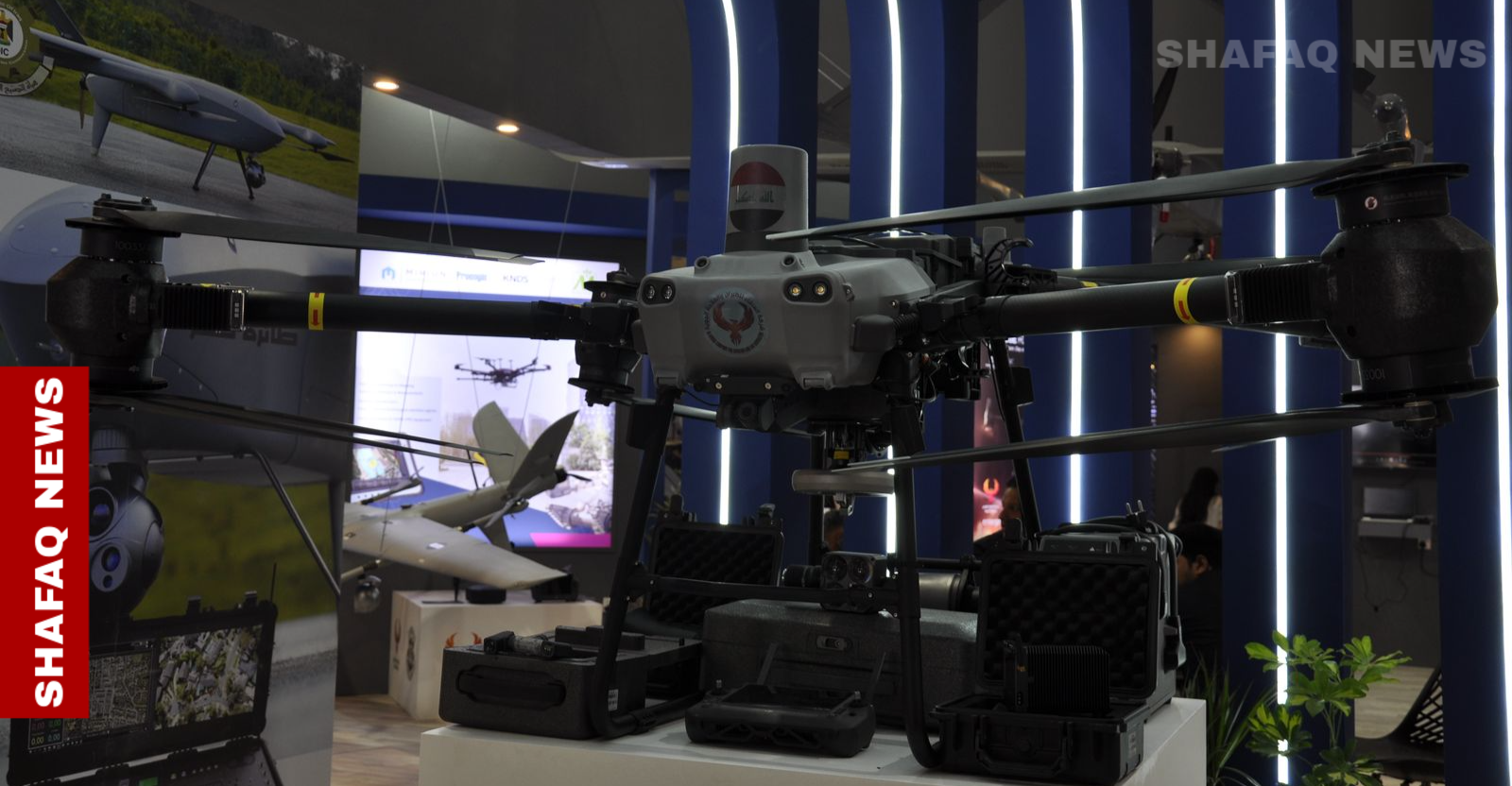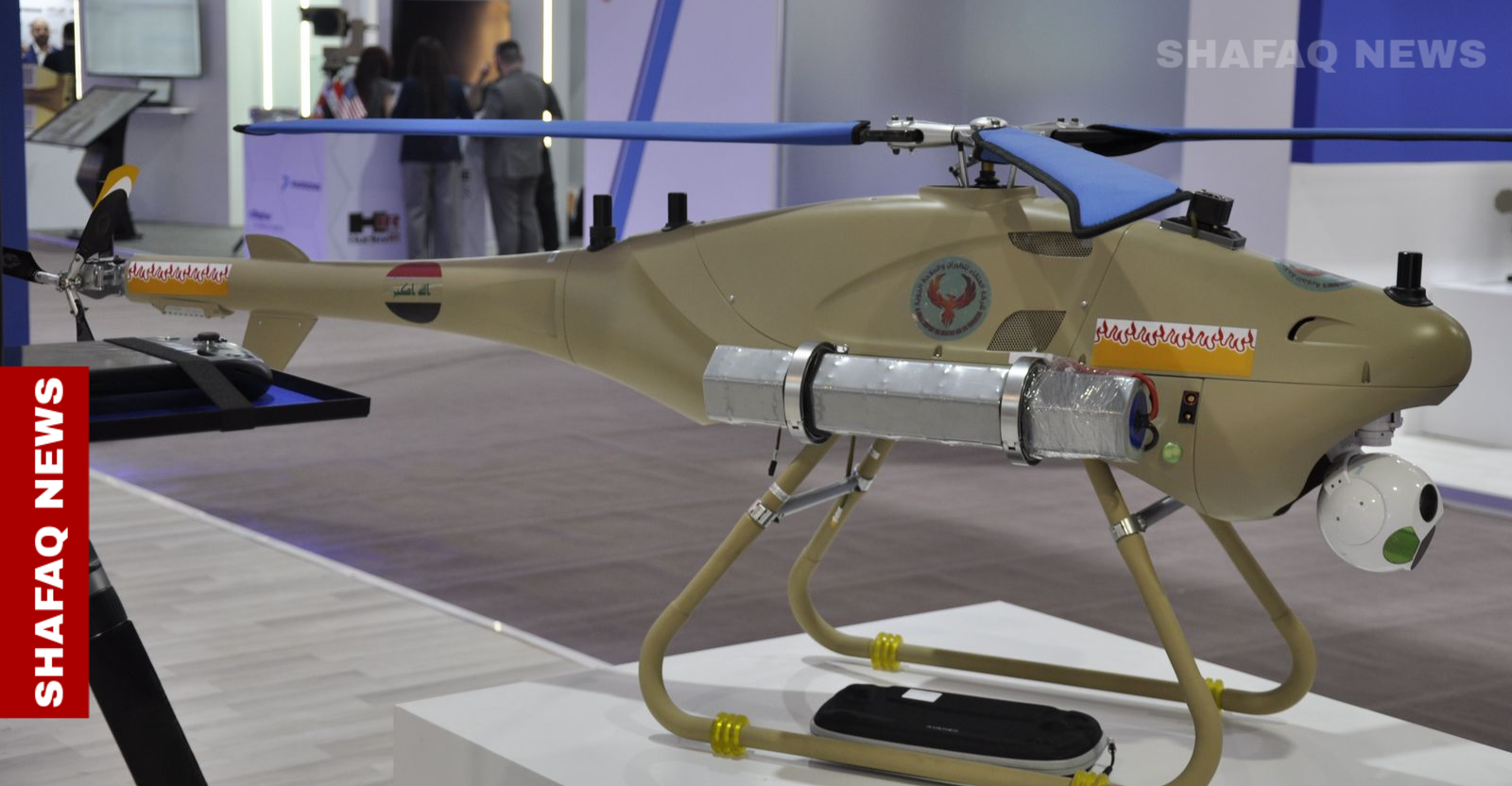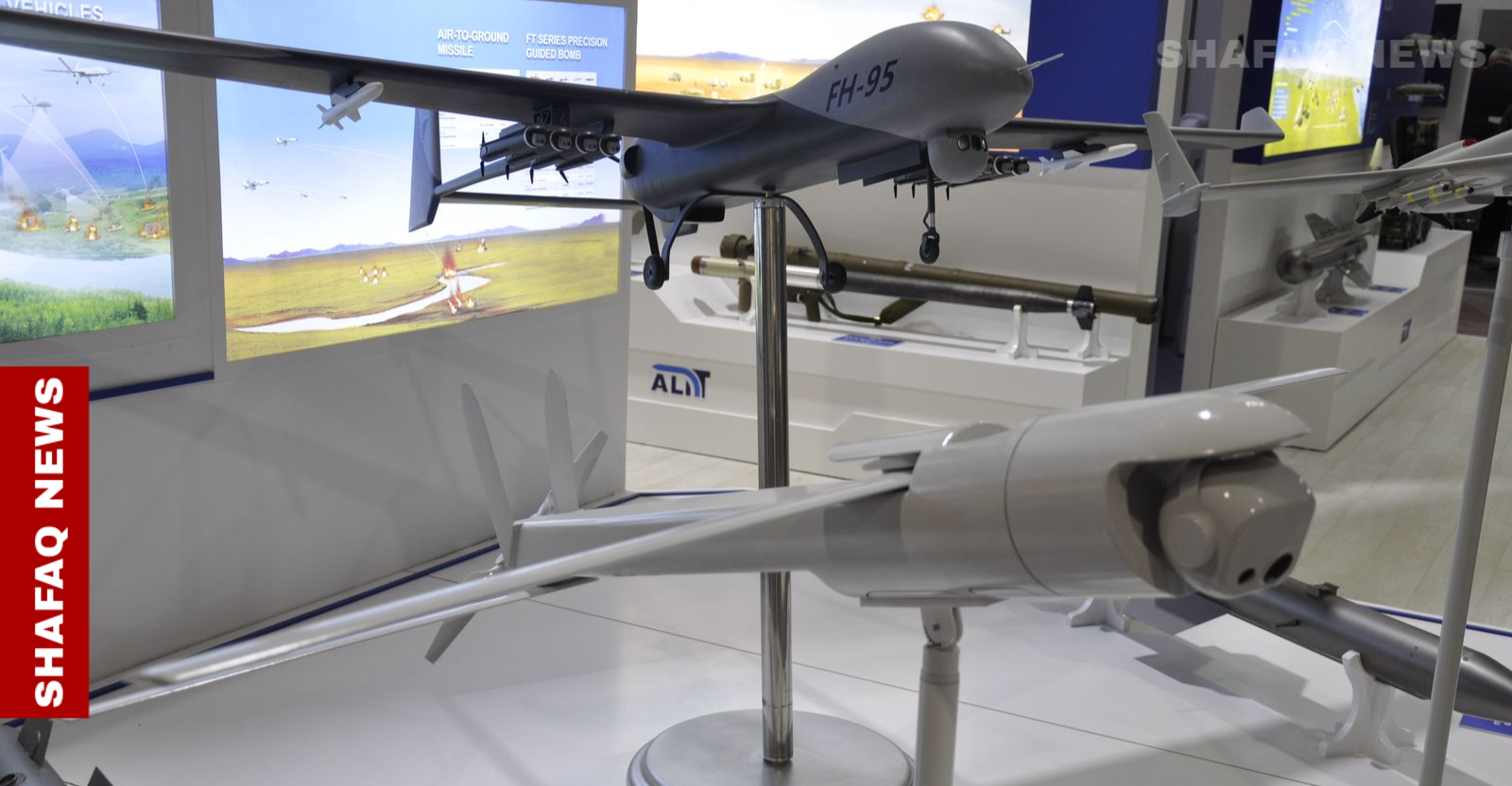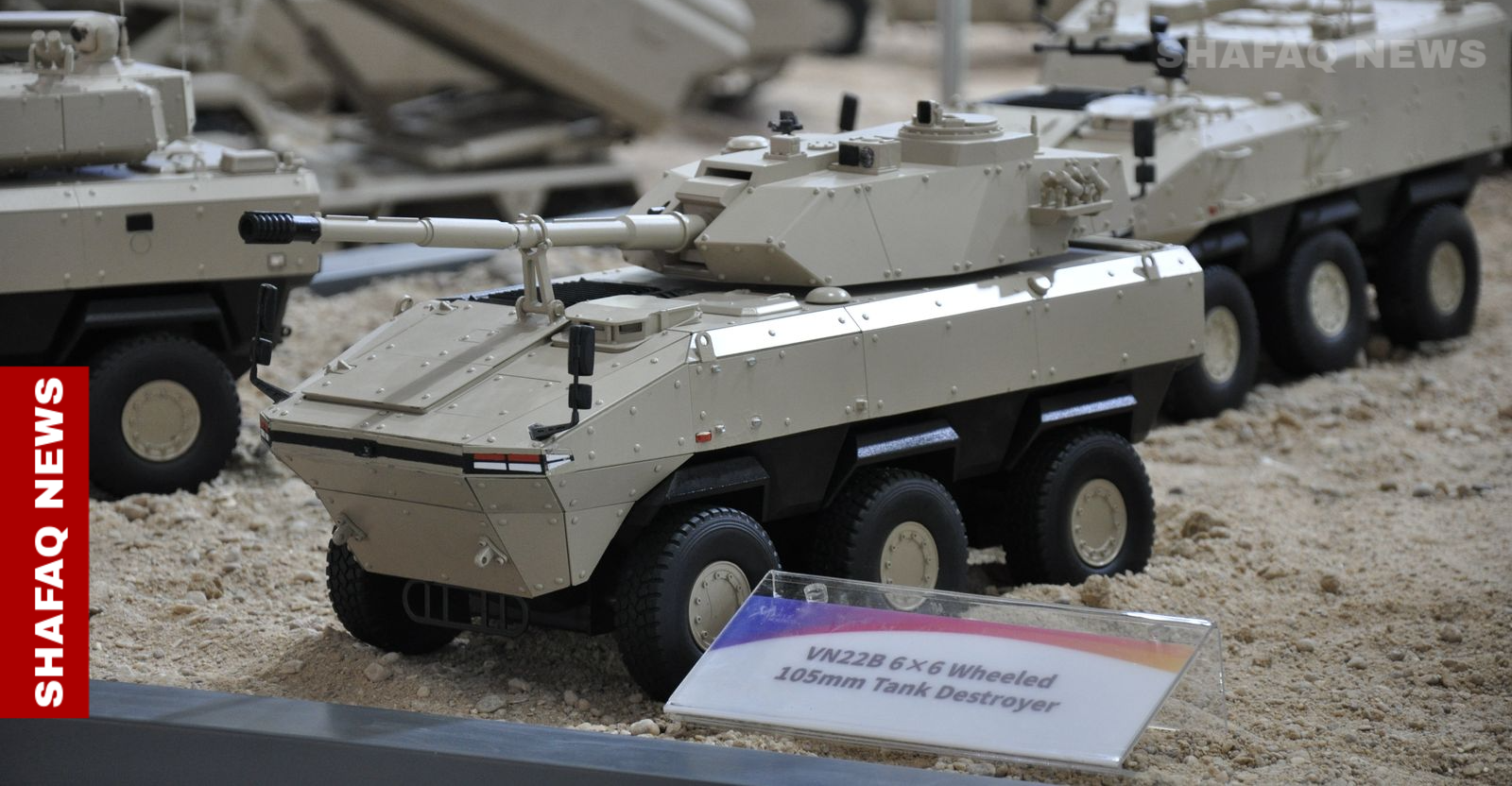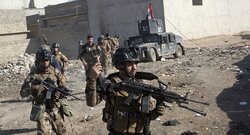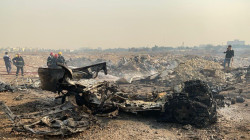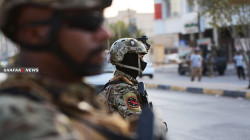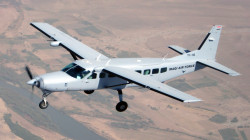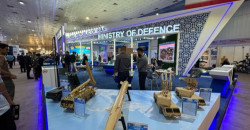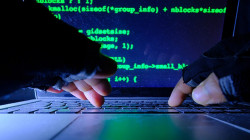Iraq hosts 13th IQDEX 2025 with broad participation
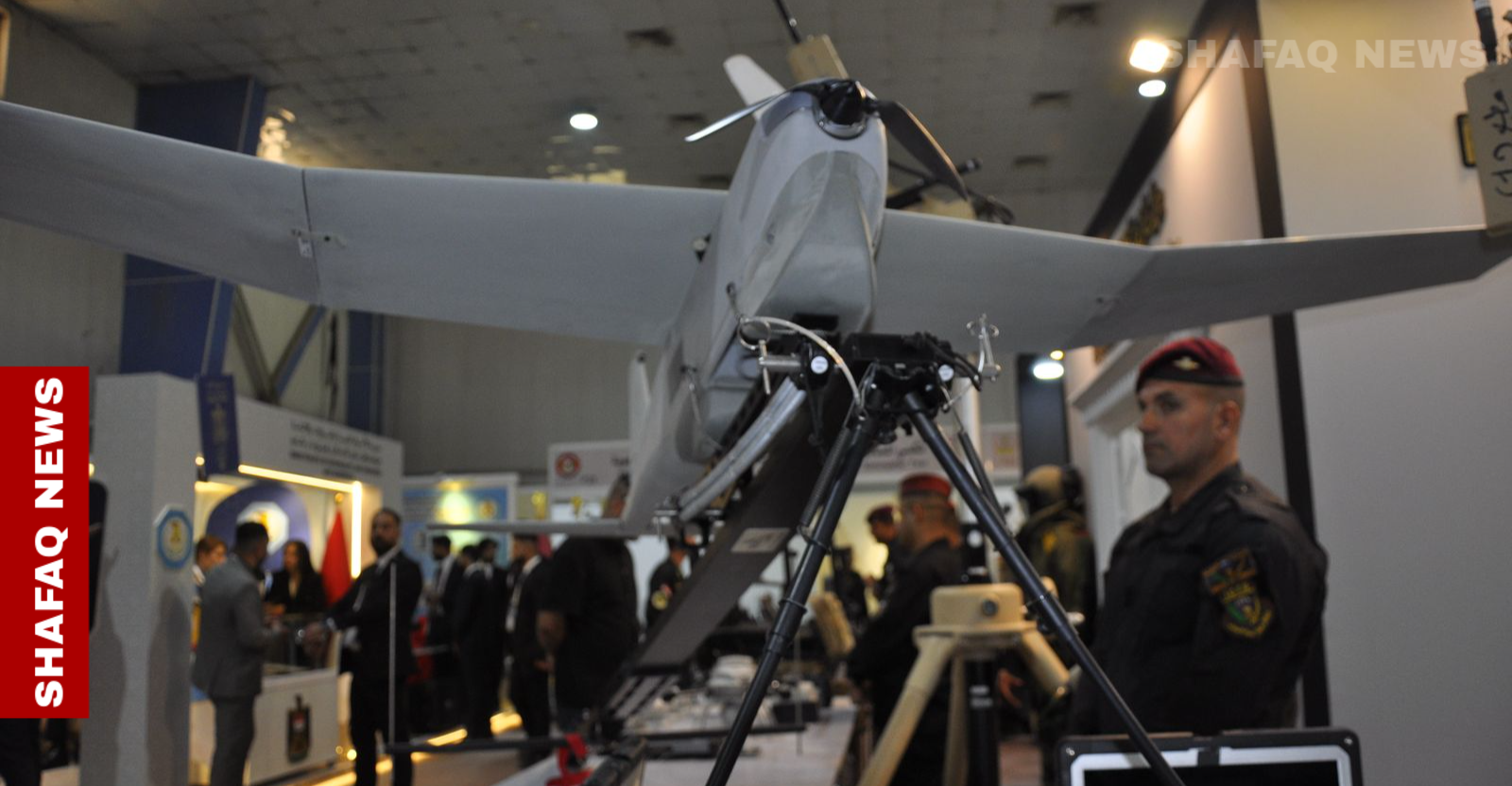
Shafaq News/ Iraq opened the 13th edition of the International Security and Defense Exhibition (IQDEX 2025) on Friday at the Baghdad International Fairgrounds, drawing wide-ranging participation from over 150 companies and delegations representing 20 Arab and international countries.
Held under the patronage of the Iraqi government, the four-day event runs from April 19 to 22 and showcases advanced military, defense, and cybersecurity technologies. The exhibition also includes two high-level conferences addressing some of the region’s most pressing security concerns.
A Strategic Platform for National and International Cooperation
In his opening address, Iraqi Prime Minister Mohammed Shia al-Sudani described the exhibition as a "strategic platform" for showcasing cutting-edge innovations in defense technologies, from battlefield systems to surveillance equipment and cybersecurity solutions.
"This event highlights Iraq's ambitions to develop a modern, self-reliant defense ecosystem," al-Sudani stated. "It is also an opportunity to strengthen partnerships between local institutions and reputable international companies." He reaffirmed the government's support for foreign investors and emphasized the role of joint ventures in advancing Iraq’s military capabilities.
Among the international participants are top defense companies from Pakistan, South Korea, the United States, France, China, Russia, Sweden, and Belarus. These companies present a broad spectrum of technologies, including land-based systems, naval platforms, unmanned vehicles, aerospace equipment, and cyber-defense solutions.
Iraqi public and private defense firms are also exhibiting, reflecting a push to localize military manufacturing.
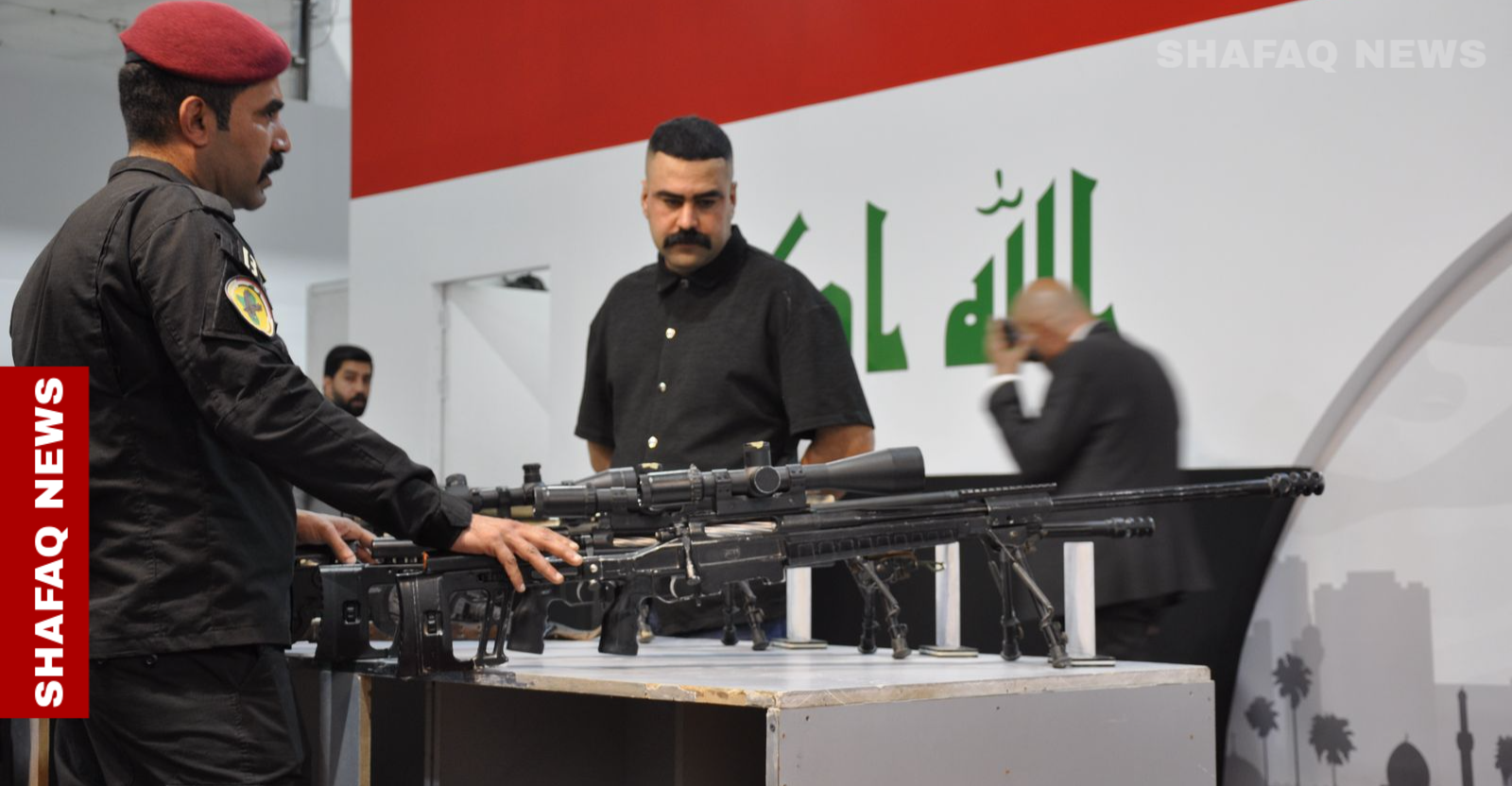
Heavy Weapons, Cybersecurity, and AI on Display
The exhibition grounds are divided into thematic pavilions featuring tanks, drones, artillery, light and medium weaponry, and a variety of military-grade equipment. Iraq’s Military Industrialization Authority (MIA), a key participant, is showcasing its recent achievements in local arms production.
Speaking to Shafaq News, MIA spokesperson Iyad al-Nouri said Iraq has reached self-sufficiency in light and medium-caliber weapons. "We now supply most security agencies with necessary arms and equipment," al-Nouri said, adding that the authority has established several specialized factories over the past three years as part of Iraq’s drive to localize defense production.
The General Directorate of Civil Defense is also participating, with exhibits featuring modern firefighting equipment, emergency response kits, and AI-powered advisory systems.
Colonel Hossam Omran bin Abdullah, head of Media and Public Relations at the directorate, said the department’s inclusion demonstrates the growing integration of artificial intelligence in Iraq’s civil protection apparatus. "We have introduced smart systems capable of issuing real-time alerts and safety recommendations," he noted.
The directorate has also acquired 300 modern vehicles to bolster its operational readiness.
Medical Support and Humanitarian Technologies
Medical institutions have also taken part, underlining the growing intersection of defense and healthcare. The Al-Warith Center, affiliated with the Imam Hussein Shrine in Karbala, is exhibiting prosthetic limbs and medical tools developed in cooperation with Iraq’s security forces.
"We’ve worked closely with military and security personnel, designing prosthetics and performing reconstructive surgeries, including facial procedures," said Yasser al-Saadi, the center’s director. The center has become one of the most prominent medical institutions serving wounded personnel.
Joining for the first time is Enana Medical Group, a local medical company showcasing a variety of products from electric wheelchairs to prosthetic limbs. "Our goal is to provide Iraq’s security ministries with reliable, locally produced medical tools," said the company’s director, Rabee' Shamil.
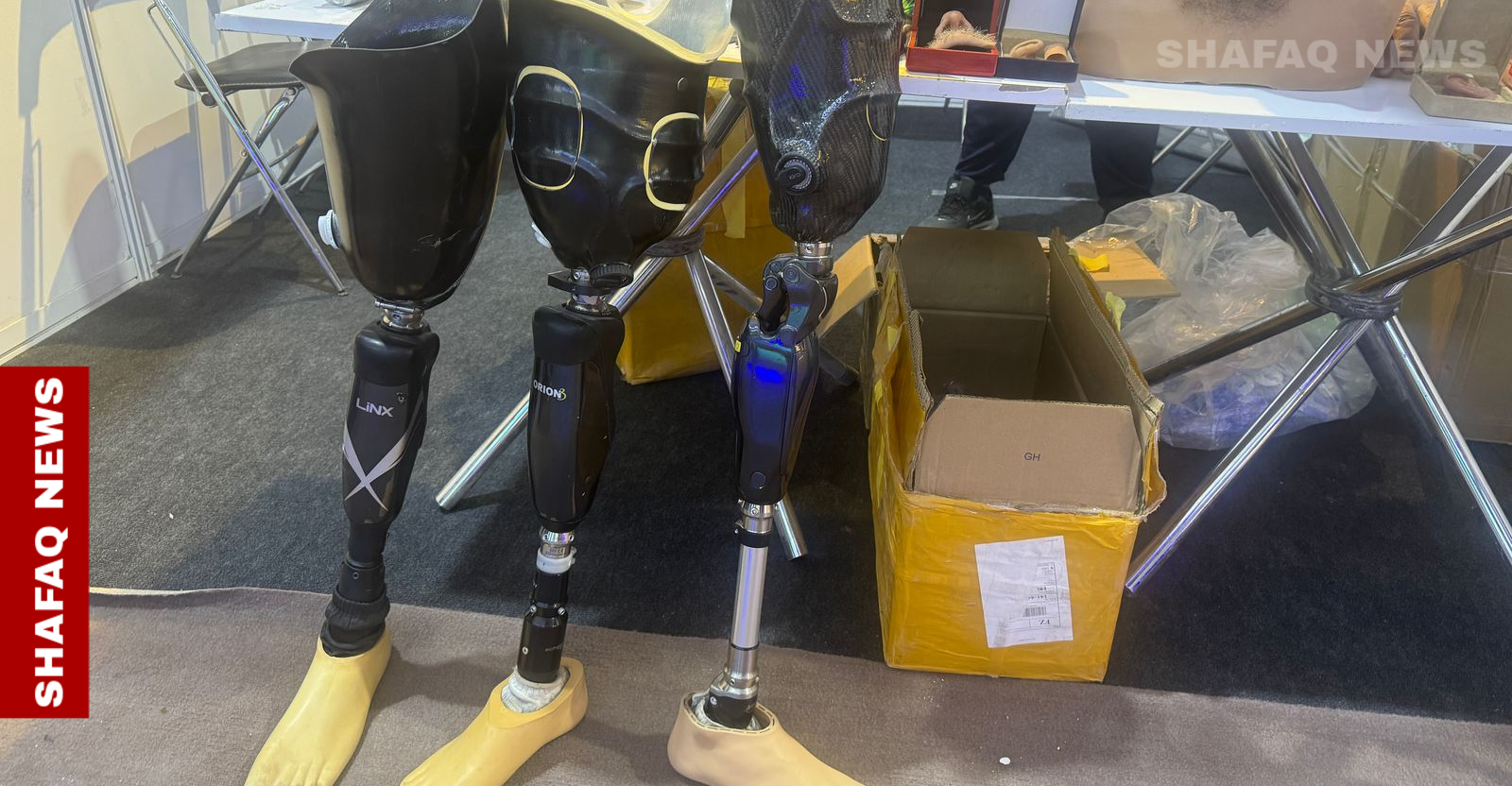
Digital Defense in a High-Tech Age
Cybersecurity has become a central focus of IQDEX in recent years. Companies like Al-Qiffaf Scientific are presenting digital forensic tools and software designed to protect critical infrastructure and support law enforcement investigations.
"We offer handwriting recognition systems, and ballistic analysis tools, and have executed several projects in cooperation with the Ministry of Interior," said Mohammed Zaidoun, a company’s representative. The firm’s emphasis is on countering emerging cyber threats through precision technologies.
Running alongside the main exhibition are two major conferences focused on regional security threats:
-The Anti-Drug Conference (April 21), will explore international collaboration on counter-narcotics operations and regional enforcement strategies.
-The Cybersecurity Conference (April 22), focuses on digital defense frameworks and infrastructure protection in an increasingly connected world.
International Exhibitors and Regional Cooperation
Among the most prominent international pavilions is that of Iran’s Ministry of Defense. The Iranian delegation is showcasing a range of air and ground defense technologies, as well as border surveillance systems.
Sharif Mohammadi, a representative of the
Iranian Ministry, said the Baghdad exhibition has become "one of the most
significant military expos in the Middle East." He added that past editions
have resulted in tangible cooperation between Tehran and Baghdad on regional
security matters.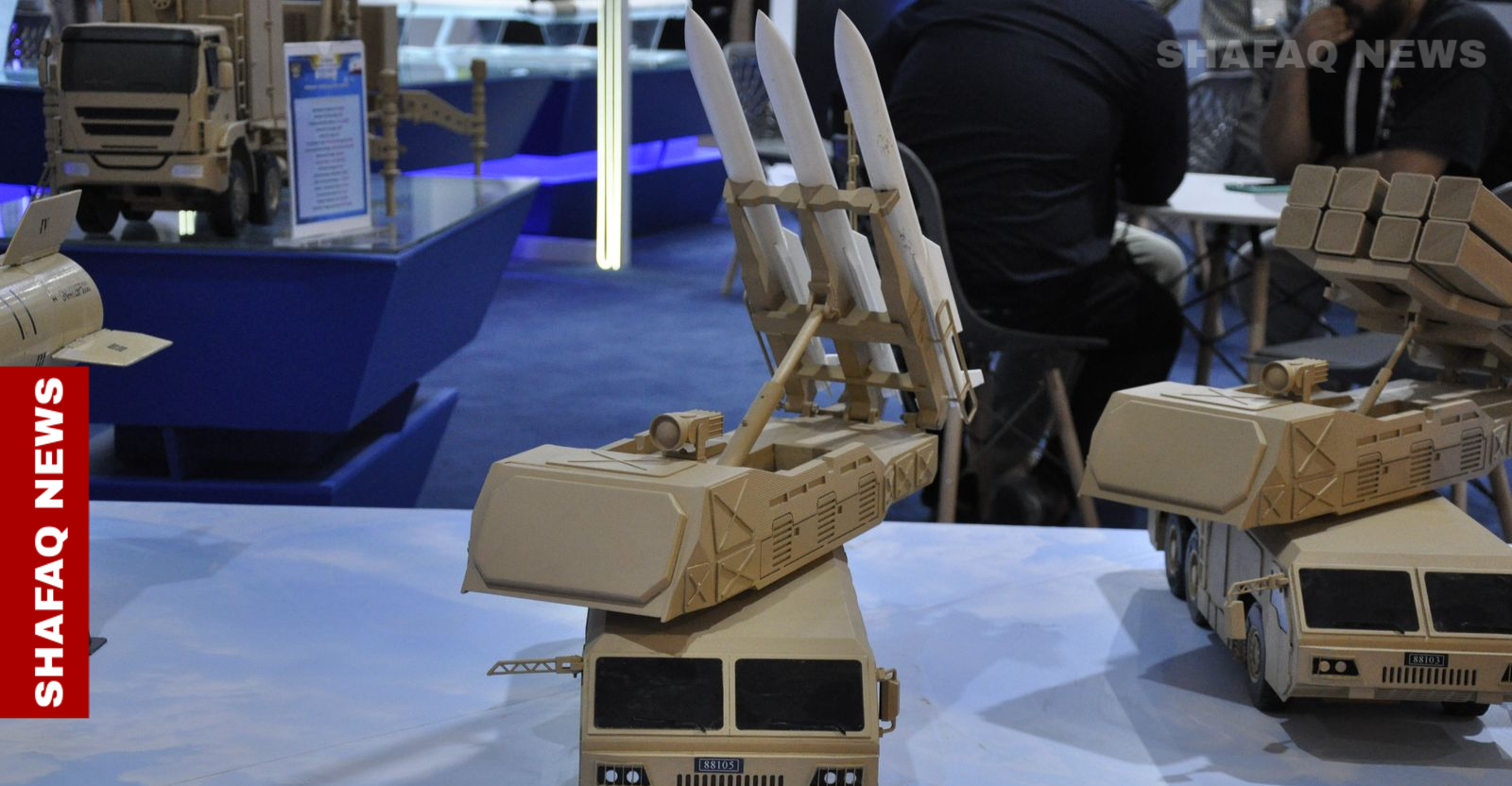
Public Reception and Growing Domestic Interest
The exhibition has attracted considerable public interest, with large crowds and long entry lines reported on the opening day. Visitors expressed both curiosity and pride in the level of technological advancement on display.
“Despite the congestion, the organization was impressive,” said Rena Abdul-Hussein, 32, after visiting several pavilions. “It was my first time seeing this kind of military technology up close. Some of it I didn’t understand, but the scale of it all was amazing.”
Another attendee, 40-year-old Reza al-Taie, praised the exhibition’s focus on Iraqi-made defense products. "It’s encouraging to see Iraq not only displaying but producing advanced military equipment. Events like this let us see what’s usually hidden from public view."
